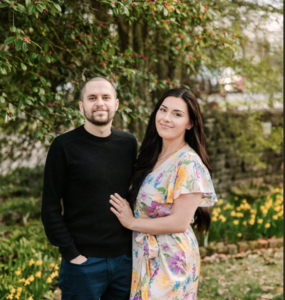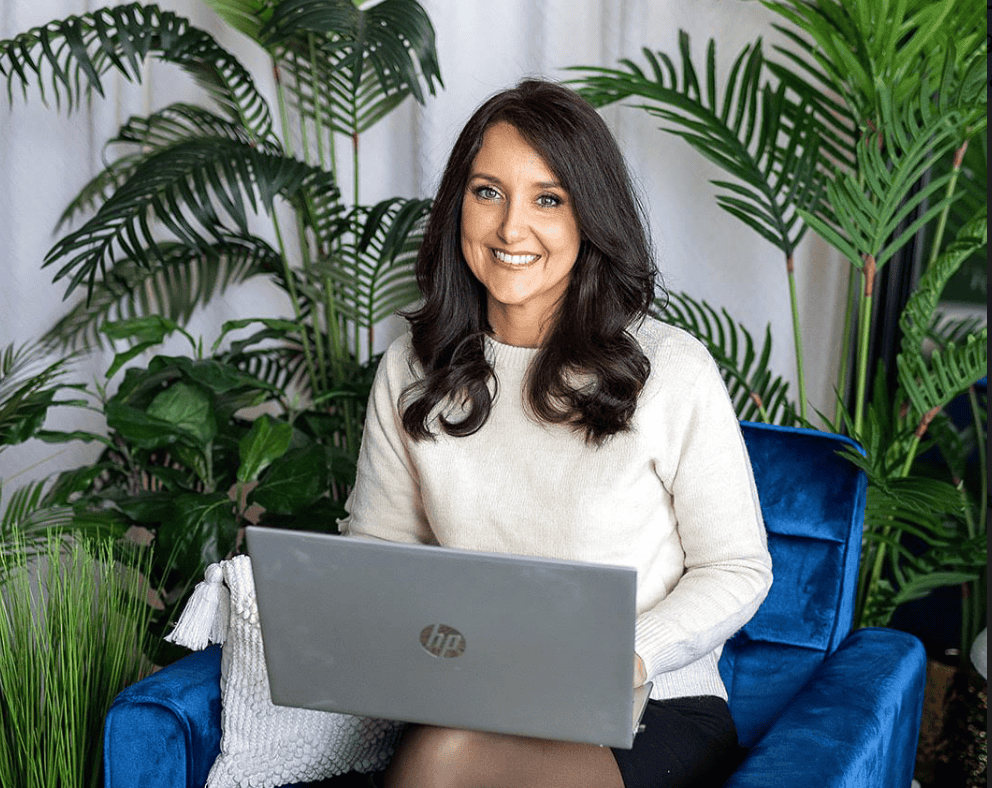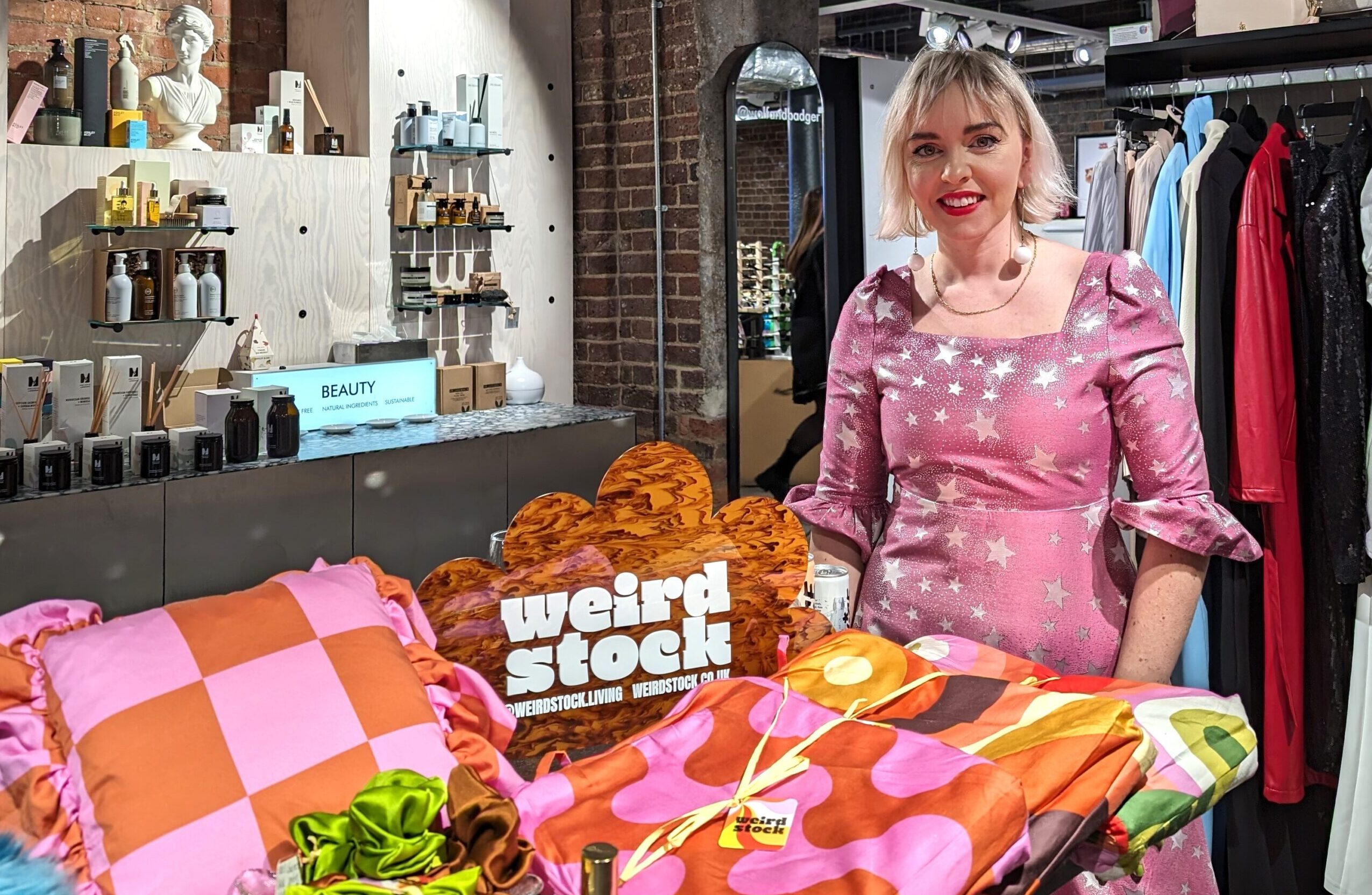After facing redundancy not once but twice—first during maternity leave and again in the midst of the COVID-19 pandemic—Polina Karbanova turned her setbacks into an opportunity to build something better. Channeling her extensive experience in fashion manufacturing and her passion for sustainability, she founded Good Fabric, an online store offering eco-conscious fabric options for home sewists. In this honest and inspiring interview, she shares how she navigated financial pressure, self-doubt, and solo entrepreneurship, all while prioritizing flexibility and freedom as a mother.
1. Can you share more about the experience of being made redundant twice and how it impacted your decision to start your own business?
Going through redundancy is a daunting experience, filled with uncertainty about the future. It can significantly impact your finances and completely disrupt any stability in your life. The first time I was made redundant was during maternity leave when the company I worked for went into liquidation. The second time was during the COVID-19 pandemic—a period that turned the whole world upside down.
Both times, I understood why I was made redundant, so I didn’t feel angry, but I was incredibly frustrated that circumstances beyond my control could have such a profound impact on my career and finances. That frustration motivated me to take control of my future by launching Good Fabric, an online sustainable fabric store.
2. How did you navigate the emotional and financial challenges during those periods of redundancy?
I was incredibly fortunate to have a supportive partner who took on a larger share of the household bills. That relieved a huge amount of pressure, allowing me to focus on raising our daughter before she started nursery. Emotionally, it felt like a clean slate—almost like a sign that I was meant to be doing something else. I don’t think I would’ve left my well-paid job to start a business otherwise, so these redundancies gave me the push I needed. Looking back, it feels like it was meant to be.

3. What motivated you to choose sustainable fabrics as the focus for your business?
I spent my career in the fashion industry, specializing in product development and manufacturing, which involved visiting factories, mills, and tanneries across Europe, the UK, and China. Sustainability is an unavoidable topic in fashion—there’s constant discussion around materials, supply chain ethics, testing regulations, and safety.
Given that background, I could never work with suppliers who don’t prioritize sustainability. I also found the lack of affordable, high-quality sustainable fabric options frustrating. I felt strongly that if I had the knowledge and resources, I should help bring better choices to the market.
4. How has becoming a business owner changed your perspective on work-life balance, especially as a mother?
When you work for yourself, you definitely put in more hours—nights, weekends, even holidays—and you might not take a salary. But the trade-off is freedom. I can manage my time and be present for the important moments in my daughters’ lives. That kind of flexibility is priceless and something no traditional job could give me.

5. What were the biggest challenges you faced in starting your business, and how did you overcome them?
The hardest part was knowing whose advice to trust. I knew fabrics and sourcing well, but things like accounting, website building, digital marketing, and copywriting were completely new. There are so many online courses, but not all are credible. It took four years to build a reliable, trustworthy team, and I made a lot of costly mistakes along the way. My best advice: trust your gut. If something feels off, it probably is.
6. Can you talk about the importance of surrounding yourself with a supportive professional community?
One of my favorite books, Diary of a CEO, says, “The most important success factor in your work is who you choose to work with.” I couldn’t agree more.
I’m technically the only employee at Good Fabric. Everyone else I work with is a freelancer or a small business owner. I’ve partnered with Studio Cotton for web design and technical support, Capture Writing for copywriting, and MyQuarterly for accounting. Knowing I can rely on their expertise lets me focus on what I love—sourcing great fabric.
7. How do you approach learning and growth in areas of your business where you feel less confident?
When I can’t afford to outsource, I rely on trial and error. Mistakes teach us far more than success ever can. I’m cautious about online courses because I question their credibility, so I tend to learn by doing. I just try to ensure that my mistakes aren’t too expensive!

8. What advice would you give to women who are considering starting their own business but are hesitant due to fear or uncertainty?
Make sure you have a support system in place—especially financial support. Starting a business often means going months without profit. Whether it’s your partner, parents, or savings, knowing your daily expenses are covered relieves a huge amount of pressure. It’s not glamorous advice, but it’s crucial to protect your mental and financial well-being while you grow your business.
9. How do you manage the balance between planning ahead for your business and staying flexible to adapt to unexpected changes?
Planning is essential, especially when dealing with seasonal fabrics. We need items live on the website at least six weeks before the selling season, as that’s how long it takes Google to index them. I plan using a large wall calendar, working backward from key dates.
That said, things often don’t go according to plan—delays in customs, incorrect deliveries, damaged goods. Having a clear plan makes it easier to adjust when something goes wrong.
10. What role does mental health play in your journey as a business owner, and how do you prioritize it?
Mental health is deeply tied to entrepreneurship. There are triggers everywhere—social media, slow sales, comparison traps. At one point, I followed all the fabric stores on Instagram. But seeing their success on days I had zero orders made me anxious and insecure. So I muted anything that triggered negative thoughts. I also make a point to take true days off. Sometimes, all I need is a trip to London with a friend to come back feeling inspired and productive again.
11. How do you stay inspired and motivated in your work, especially during challenging times?
Motivation comes and goes, especially when you’re not seeing immediate results. That’s where discipline comes in. I make a list—daily, weekly, or just general goals—and tick off a few things every day. It gives me a sense of achievement, even on tough days, and helps keep me moving forward.
12. What advice would you offer to other women facing similar challenges of redundancy or career setbacks?
Take the time to pause and reflect. When I was made redundant for the second time, I wrote down what I truly wanted in my next job: flexibility, minimal commute, and the ability to use my existing skills. That exercise made me realize the perfect job didn’t exist—but I could create it myself. Get clear on your non-negotiables and start from there. Whether it’s a new job or launching a business, don’t be afraid to bet on yourself.

Connect with Good Fabric:
- 🌐 Website: goodfabric.co.uk
- 📸 Instagram: @good_fabric_store






